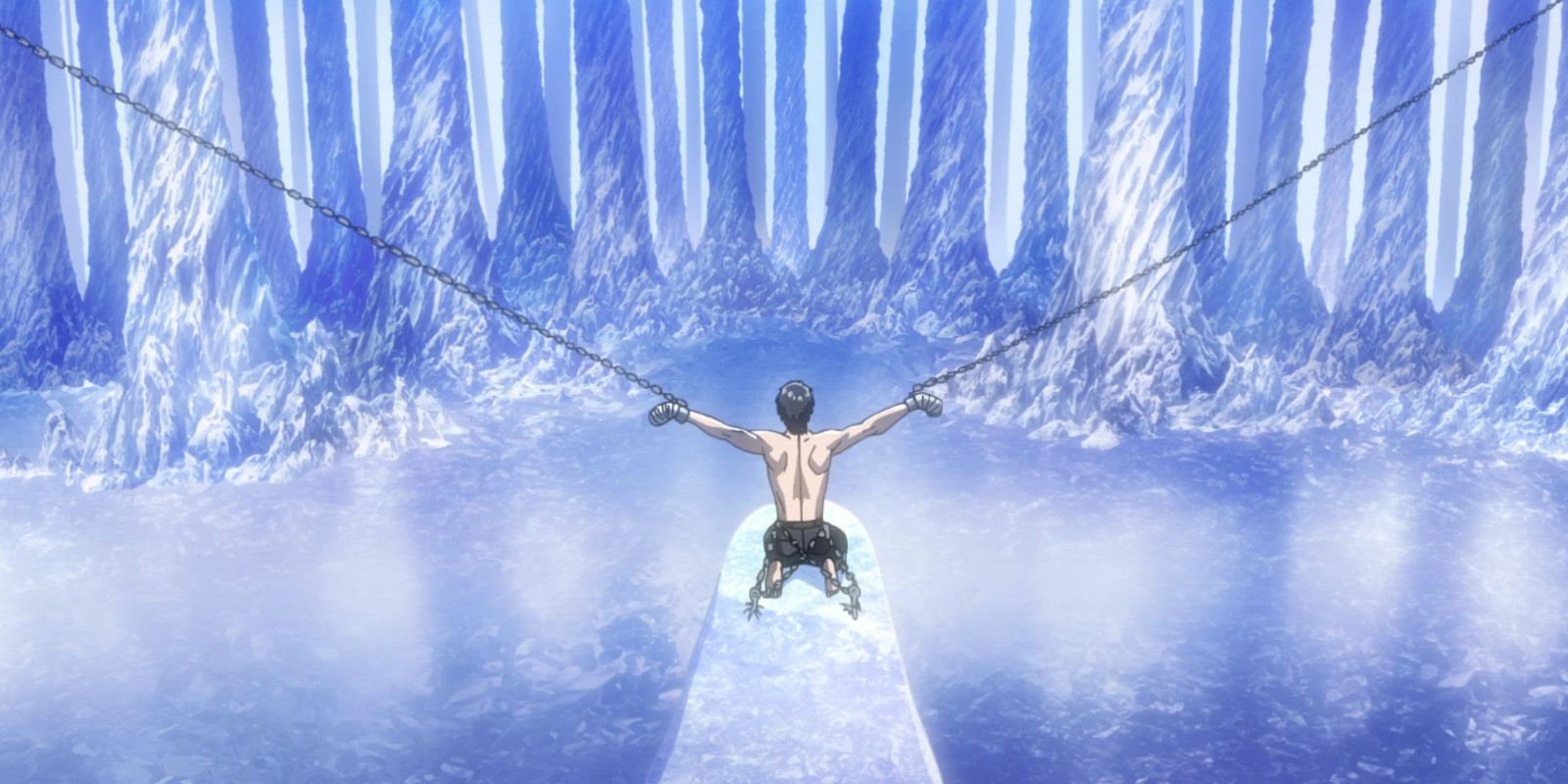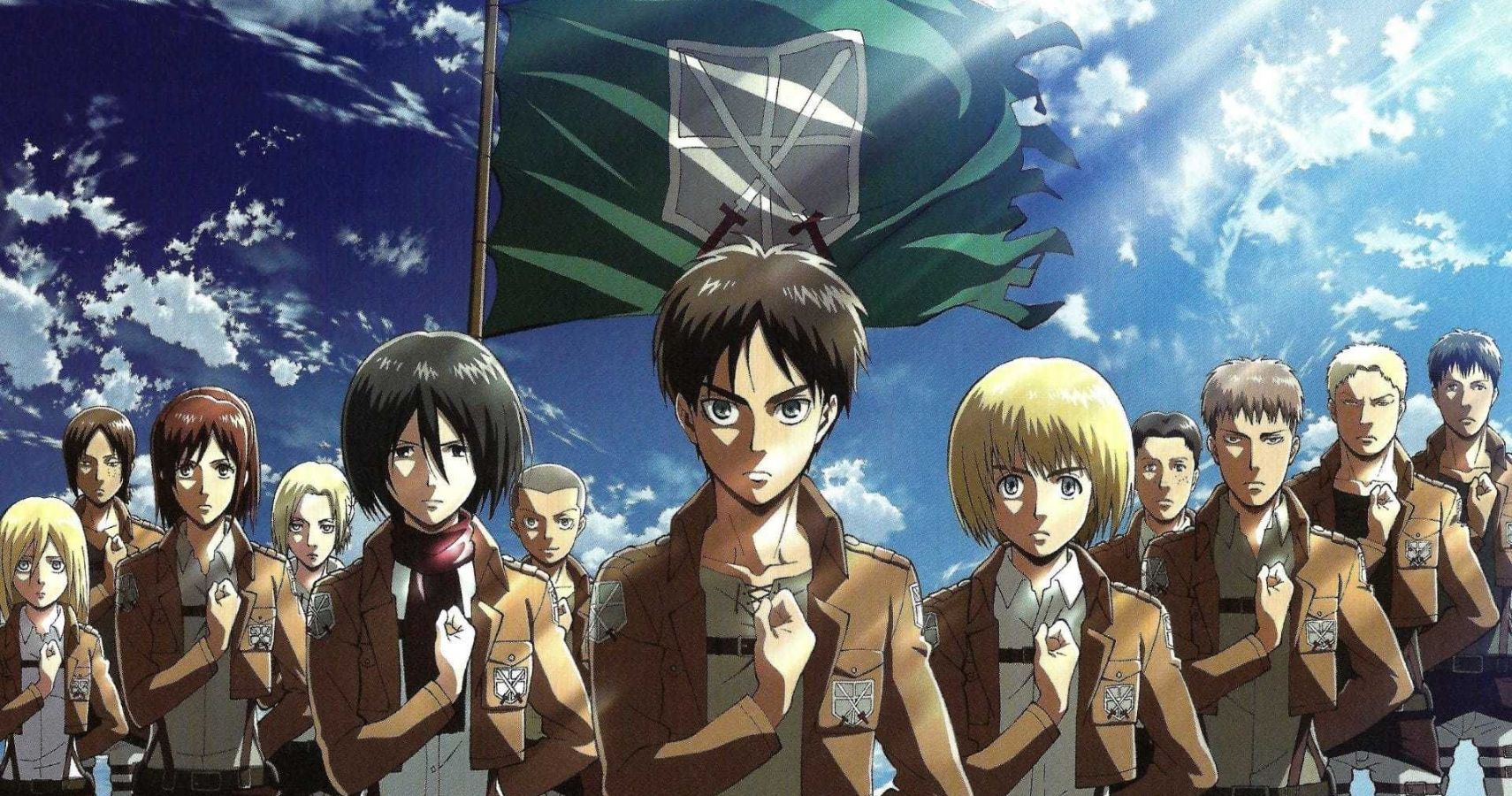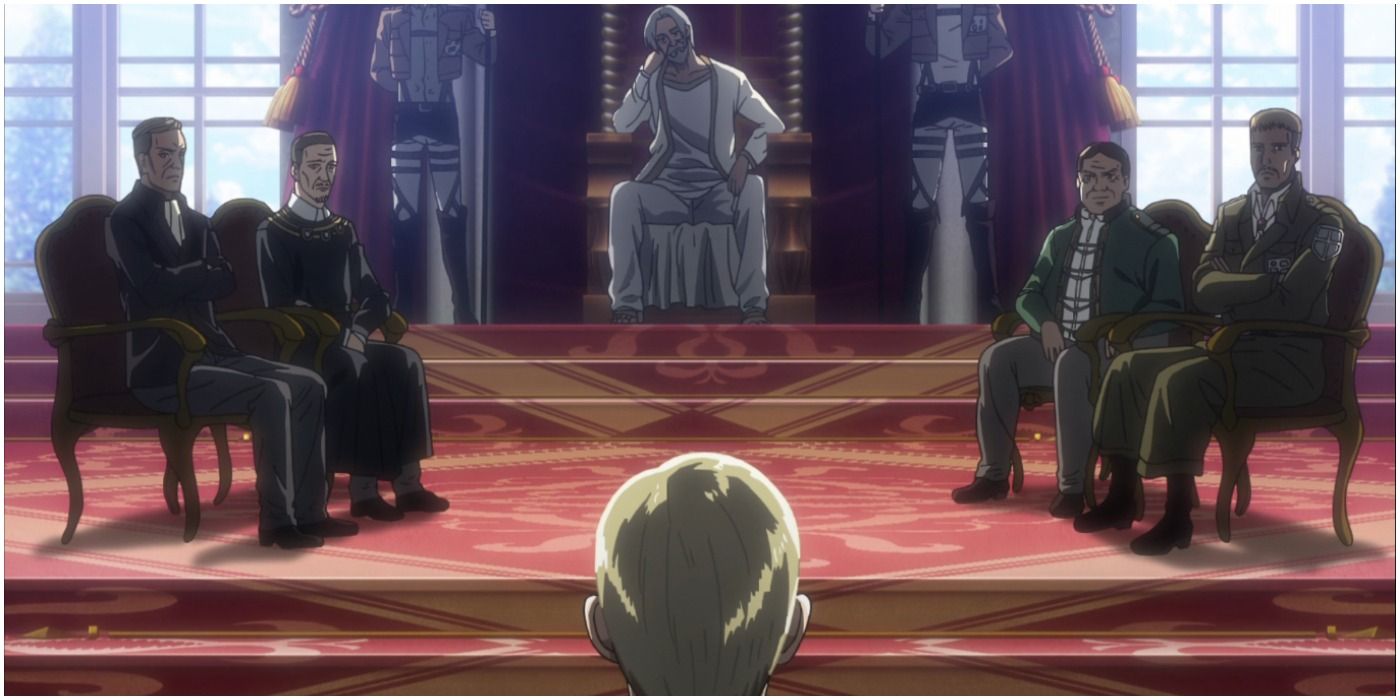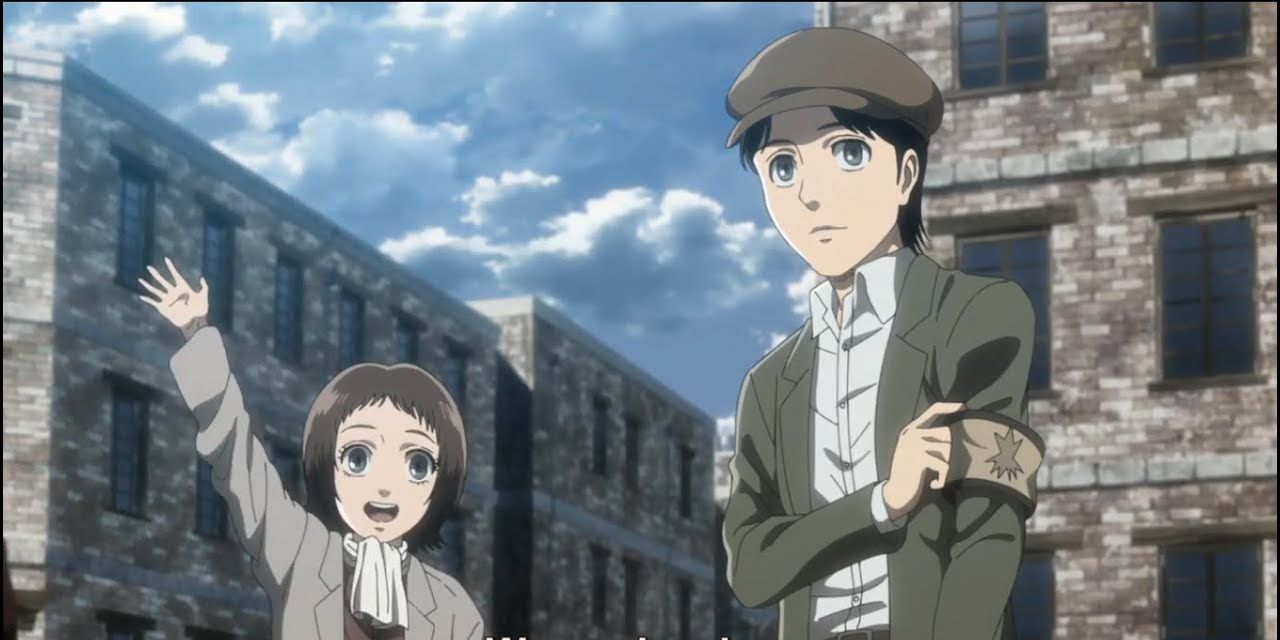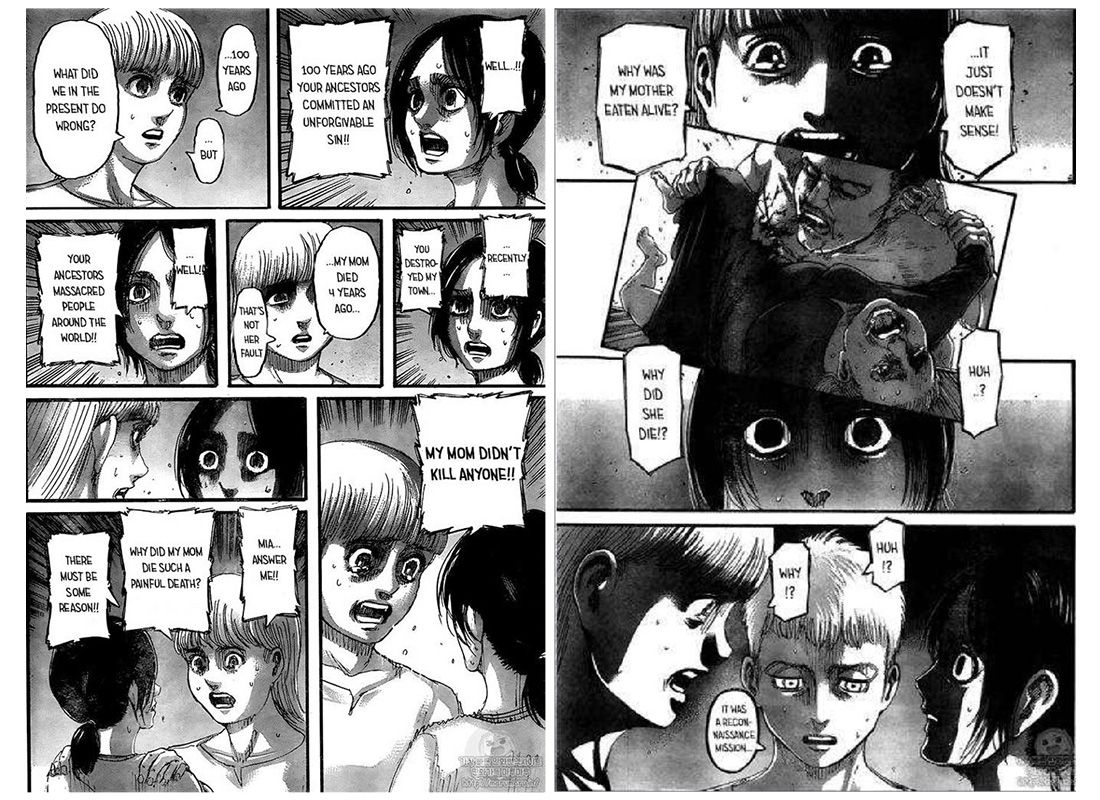WARNING: The following contains spoilers for the Attack on Titan manga, available in English from Kodansha.
In recent years, Attack on Titan has faced accusations of being anti-Semitic, due to narrative parallels with Nazism and the Holocaust, and of containing disturbing fascist subtexts, stemming from Isayama basing one of his characters -- Dot Pixis -- on General Akiyama of the Japanese Imperial Army. However, simply portraying these issues is not condoning fascist ideology. Attack on Titan's overall message is decidedly anti-fascist and anti-racist, and it's far from subtle once one goes deeper into the story.
Attack on Titan starts in a society where supposedly all of humanity miserably exists within the confines of three large walls, with the outside world seemingly ravaged by terrible man-eating Titans. The similarities with Nazism is very distinct here. Notable political theorist and abhorrent Nazi Carl Schmitt explained the concept of an ideal fascist society as one which accepts the existence of inequality, conflict and suffering as inevitable, and instead attempts to divert the attention of its citizens towards a common enemy in order to avoid civil conflicts. This philosophy is seen prominently within the society in Attack on Titan, where its authoritarian government has convinced people that their misfortune is due to the Titans oppressing them, and uses this narrative to justify the militarization of society.
How Attack on Titan Criticizes Fascism
The similarities between Nazism and Attack on Titan is very clear. However, it doesn't glorify the fascist government it portrays, but rather breaks it apart and exposes its flaws. In later developments in the series, the main characters find out that Titans that roam outside are not in fact monsters, but former humans who were transformed into Titans against their will who now mindless walks the earth in an endless nightmare. Just like how the Nazis used false propaganda to convince people that the Jewish people were the enemies of German society, the government in Attack on Titan did something similar, with the "enemies" turning out to be humans that are actually victims of the fascist system same as the other ordinary people.
With this secret out, the government immediately deems the Scouts -- the group the main characters are a part of -- as traitors, and orders their arrest in a desperate bid to keep the truth hidden from the rest of society. For the first time, the main characters turn their attention away from the falsely propagandized enemy to the real oppressors, the fascists in power. This was hinted all the way back in season 1 when Erwin asked Eren who he thought the real enemy was.
It's soon exposed that the nobles in power have impeded the progress of technology and spread of news, and have lied to the people about the Titans so as to distract away from their own luxurious, excessive lifestyles, with the military revealed to be enforcers of this lie. Hange encourages the newspaper company to ignore government orders and to instead publish the truth about their society. The nobles are exposed as greedy men that don't actually care about humanity but only themselves. Historia, the heir to the noble Reiss family, rejects her father's ideas that maintaining the status quo is for the betterment of mankind, instead freeing Eren and choosing the collapse of their fascist government.
RELATED: From Attack on Titan to Parasyte: Anime’s GROSSEST Hero Transformations
How Attack on Titan Criticizes Racism
After the fall of the government, the truth of the world in Attack on Titan is finally revealed: humanity still exists outside of the walls and they hate the Eldian race which the main characters are a part of. Eren's father Grisha turns out to be an Eldian from the country of Marley where he was part of the secret Eldian Restorationist group. In the society of Marley, Eldians are portrayed as the "enemy" of society, with most of them living within this country as second-class citizens forced into interment zones while wearing armbands. This is a clear parallel with the way Jewish people were treated during the Holocaust, though the story of the Eldians also has parallels with the histories of the Japanese people, North Koreans and many other other groups, so it's not written as an exact 1:1 metaphor.
The Marleyans hate the Eldians due to nationalistic propaganda stating that the ancient Eldian Empire committed many atrocities against non-Eldians including the Marleyans. The Eldian Restorationists however believe the Eldian Empire built great walls and bridges and was actually good for the people it conquered. The Restorationists, including Grisha, wanted to reestablish the Eldian Empire and gain freedom from the Marleyans. When this alternative narrative is revealed to the Eldians that were trapped within the walls, a new fascist faction that fans have called the "Yeagerists" comes into existence and immediately seizes power through a coup. Fueled by the desire to kill their "enemies" and gain freedom for themselves, the Yeagerists decide to commit global genocide on their oppressors.
Here's where the story denies the racist and xenophobic narrative of both fascist regimes. Gabi, an internment Eldian, who vehemently believes the Eldians within the walls are "devils," is saved by a wall-Eldian girl named Kaya. Kaya, unbeknownst that Gabi was responsible for killing her foster sister Sasha, tells Gabi that her mother was killed for no reason. When Gabi says its because of the atrocities committed by the ancient Eldian Empire, Kaya replies that neither her or her mother was there when it happened and should not be responsible for the actions of their ancestors. Then later when Kaya finds out that Gabi was in fact Sasha's killer, she initially finds herself wanting to kill Gabi, but eventually learns to forgive her after realizing Gabi's prejudice was a result of the systematic indoctrination by the Marleyan government.
Gabi, after realizing the flaws of her irrational beliefs, instead decides to join the main characters to fight against the aforementioned prejudice. The main characters -- now an unlikely alliance of former enemies and allies who all know full-well that eradicating the "enemy" isn't ever the solution -- takes up the Herculean task of stopping the genocide that is being led by their own friend, the protagonist-now-turned-antagonist Eren Yeager. This is how Isayama sets up fascist, racist or xenophobic arguments and then proceeds to counter them through his highly nuanced storytelling.

